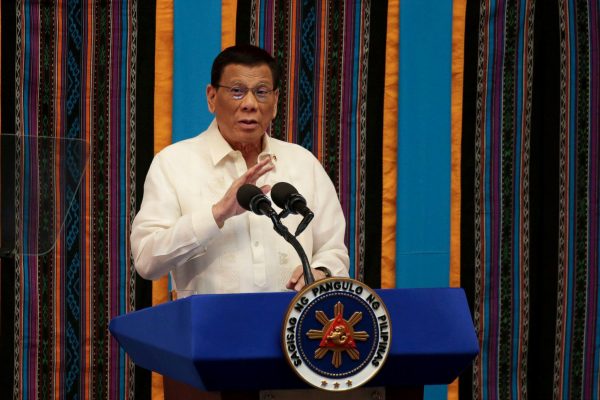Simply put, there is insufficient time for such a major undertaking given low public understanding and acceptance of federalism. Apparently, Duterte is reserving his political capital for realising other legacy projects in the remaining three years of his administration. As Manila Times columnist Marlen V Ronquilo astutely observed, the ‘popularity of President Duterte can actually translate into electoral votes. That was proven in the midterm elections. But that popularity and appreciation cannot sway enough positive votes on charter change’.
Without the President’s full support, the federalism initiative will most likely falter under this administration. Congress is set to deliberate on the annual budget in July and politicians are already gearing up for the next presidential election in 2022. Duterte’s federalist dreams might end the same way as previous failed attempts to revise the 1987 Constitution.
Duterte, who hails from the southern island of Mindanao, was the first politician to successfully win the presidency on a platform of federalism. Since the colonial era, the Philippine archipelago has been burdened by an overconcentration of political and administrative powers in Manila. Despite the country’s long experience with decentralisation, regional disparities prevail. Metro Manila, Calabarzon and Central Luzon account for 62 per cent of GDP, while 14 out of 17 regions account for only 38 per cent.
Federalism is seen to offer a more viable alternative premised on the principles of self-rule and shared rule. Duterte also sees federalism as a solution to the ‘historical injustices’ committed against the peoples of Mindanao, particularly the Muslim population.
Duterte convened a Consultative Committee to Review the 1987 Constitution (ConCom) in December 2017. The ConCom completed its task in six months and submitted a draft Bayanihan Federal Constitution to the President. Aside from outlining the contours of 18 federated regions, the draft enumerated necessary political pre-requisites like a self-executing ban on political dynasties, political party development and electoral reforms. Without these important reforms, a shift to federalism might prove disastrous for the country, with the regions becoming fiefdoms of local political clans and dynasties.
As expected, the draft charter faced strong resistance from the anti-Duterte opposition. Critics have labelled the proposed shift a ‘populist authoritarian project’. Constitutional change has been a persistent theme in the Philippines since the restoration of democratic governance and the ratification of the 1987 Constitution. Yet both civil society and the general public have viewed attempts suspiciously as ploys to short-circuit the six-year presidential term limit.
Ironically though, the more lethal blow to the federalist initiative came from within the President’s political allies and cabinet technocrats. Despite Duterte’s overwhelming popularity, he did not exert effort to build a broad coalition in support of his federalist aspiration. His political allies are silently undermining it, while his economic managers question its economic viability. Even his daughter and perceived successor, Davao Mayor Sara Duterte, is against federalising measures. It is increasingly unlikely that federalism will be an election issue in 2022.
Just before the midterm elections, the House Committee on Constitutional Amendments released its own draft federalist constitution. The House version not only expunged all of the ConCom’s proposed reforms, it removed the existing anti-political dynasty provision and term limits for locally and nationally elected officials enshrined in the 1987 Constitution.
The President has left the door open for some form of constitutional change with the second half of his statement: ‘change the constitution that would change this nation’. In remarks made after endorsing his coalition’s candidate for house speaker, he insistently told his political allies, ‘If you want to change the Constitution, do it now [while I’m still here]’. His allies in both chambers may still be cajoled into acceding to some form of constitutional change.
But so far, Duterte has been vague about the kinds of amendments he wants. He may consider lifting the nationalist, protectionist economic provisions of the 1987 Constitution — a popular recommendation among the business sector. Duterte might also take a less radical track by unbundling the package of reforms included in his federalist project. He may also pursue the implementation of full autonomy or ‘a kind of maximum decentralisation, short of federalisation’ following the Spanish model. But all of these reforms are contingent on maintaining his popularity among the Philippine people.
Julio C. Teehankee is Professor of Political Science and International Studies at De La Salle University, Manila. He served on the Consultative Committee to Review the 1987 Constitution and chaired its Sub-committee on Political and Electoral Reforms.

